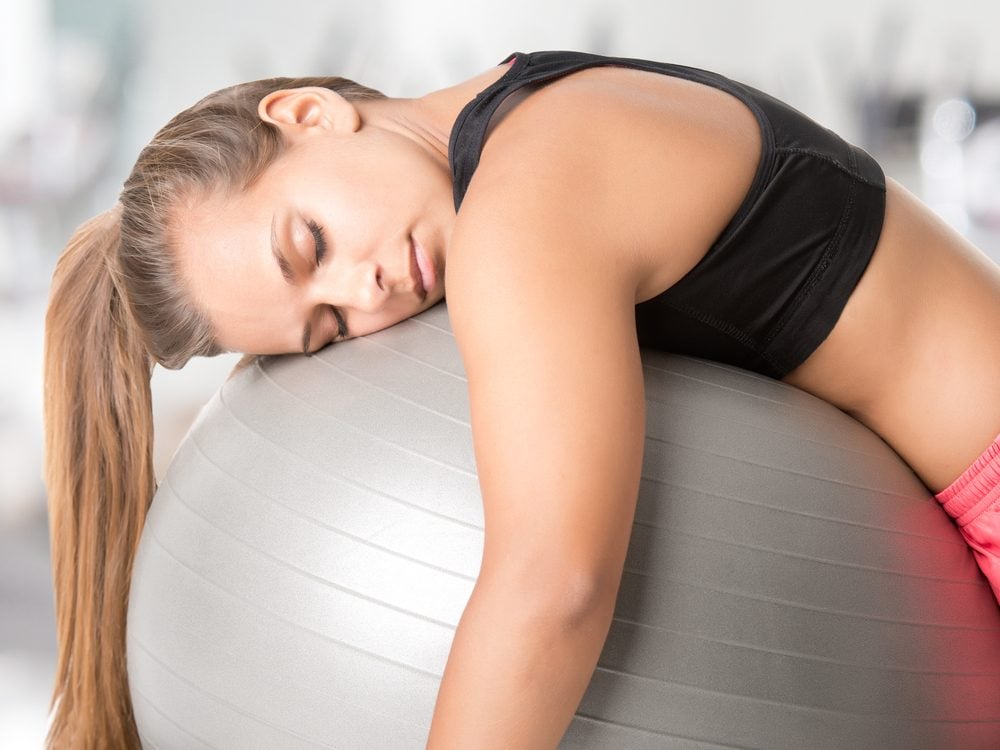
Don’t: Hit the gym full force
“Working out [hard] when you’re tired is a waste of time if you don’t have the energy to keep up with your regular routine,” says William Suggs, a certified personal trainer and licensed sports nutritionist in New York City. Instead, focus on light cardio like walking, biking, or the elliptical, which lets your arms help propel you through the workout. If you must pump some iron, stay away from free weights and stick to circuit machines, which are specifically designed to protect you from injury, says Suggs.
Speaking of injury, you’re more likely to tweak a muscle or cramp up when you’re tired, especially your back. “You’re more prone to injury when you’re fatigued because it’s harder to focus on your workout and on engaging your core, which stabilizes you,” says Suggs.
Eat a piece of fruit for a healthy pre-workout energy rush. “You won’t feel jittery but the simple sugars will keep your tank going,” says Suggs.
These 13 insider tips will help you get the most out of your gym membership.
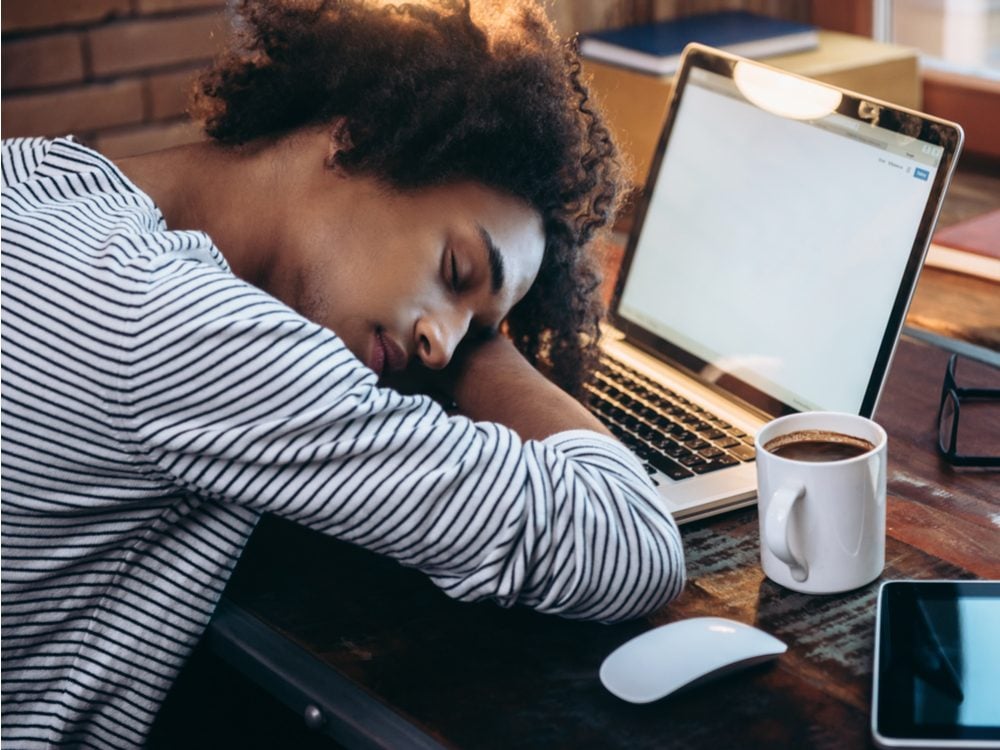
Don’t: Guzzle caffeinated beverages
Knocking back coffees all day may seem like the best way to power through a slumpy Monday. But not only will you crash and feel sluggish once the caffeine boost wears off, keep in mind that caffeine has a half-life of up to five hours; this means that five hours later about half of what you ingested remains in your system. “You won’t feel that surge of energy but your brain knows caffeine is there, which can impact your ability to sleep at night,” says Daniel Barone, MD, a sleep expert at Weill Cornell Center for Sleep Medicine at New York-Presbyterian Hospital. His rule of thumb: Cut off caffeine consumption after 1 p.m.
Next time you’re dragging, swap out your afternoon java for a stick of peppermint gum. Peppermint stimulates nerves in your brain responsible for feeling awake and alert, Alan Hirsch of the Smell & Taste Treatment and Research Foundation told menshealth.com.
Tired of being tired all the time? Here are 12 Secrets to a Deeper Sleep.
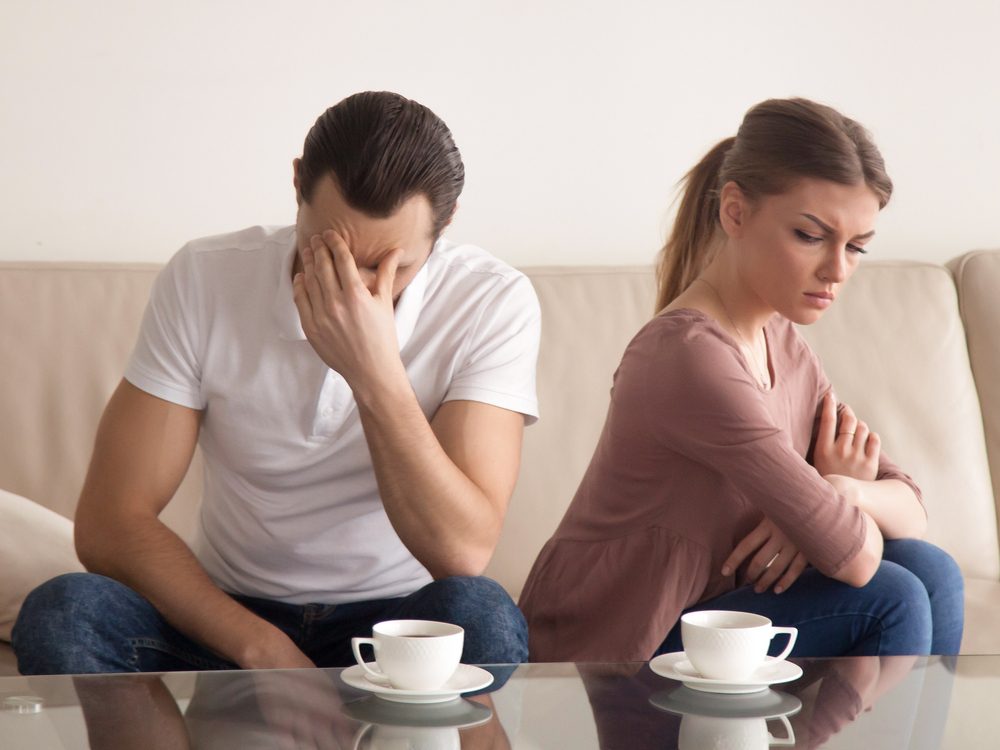
Don’t: Pick a fight with your partner
When you’re tired, a mild disagreement can quickly escalate. Sleep deprivation makes it harder to control emotions, according UC Berkeley and Harvard Medical School research. “It’s almost as though, without sleep, the brain…is unable to put emotional experiences in context and produce controlled, appropriate responses,” says study author Matthew Walker. Another study from UC Berkeley found that it’s harder to accurately read facial expressions when you’re tired, which means you’re more likely to misinterpret your partner’s intentions.
Make sure to check out 7 Common Marriage Myths—Busted!
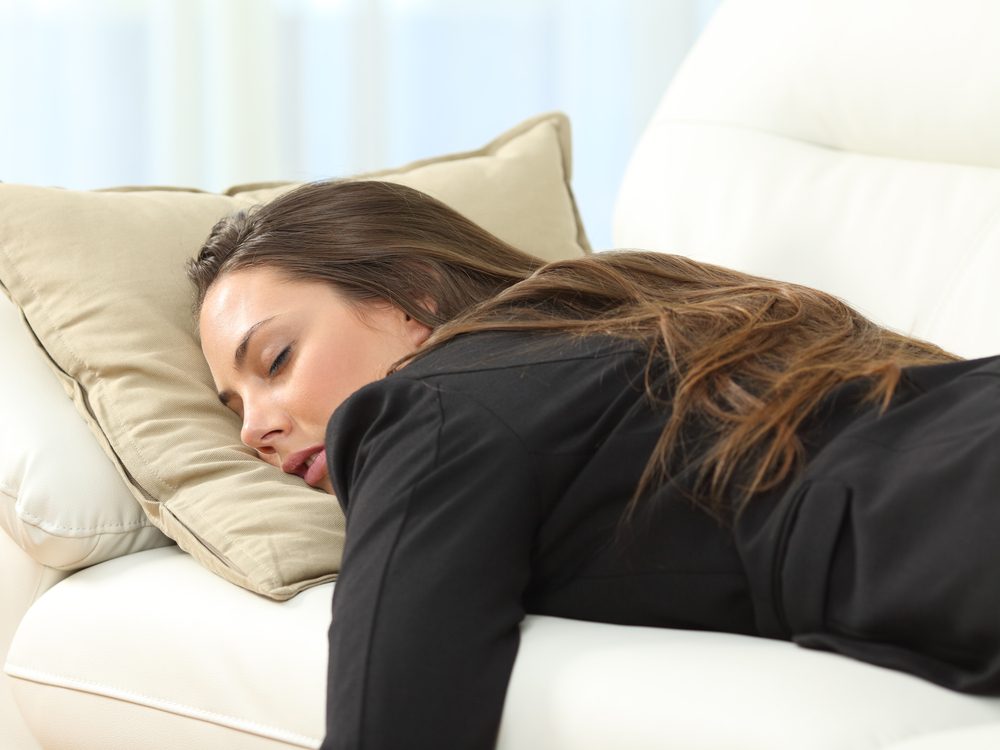
Don’t: Take a nap
A nap is a good idea, but only if you nap the right way. Sleeping too long or too late in the day can make it harder to sleep at night, which means you’ll still be tired the next day, says Dr. Barone. For a jolt of alertness without sabotaging your bedtime, the perfect nap is 20 to 30 minutes as early in the day as possible, he says.
According to science, these songs will give you the best night’s sleep.

Don’t: Cave to junk food cravings
Studies show that a sleep-deprived brain craves fatty, high-calorie foods because the regions that control decisions are blunted and those linked to desire are amplified. Translation: junk foods are harder to resist. “When you’re tired your body is looking for a dopamine release, so eating your favourite unhealthy food will feed your brain and make you happy,” says Suggs. If ordering takeout is all you can muster, opt for steamed vegetables and a lean protein like chicken with brown rice from your favourite Chinese spot, says Suggs. “It’s a balanced meal—whole grains, protein, veggies—without the effort.”
Stay away from the grocery store. One study from Uppsala University found that sleep-deprived shoppers purchased more and higher-calorie food than they would have when not tired.
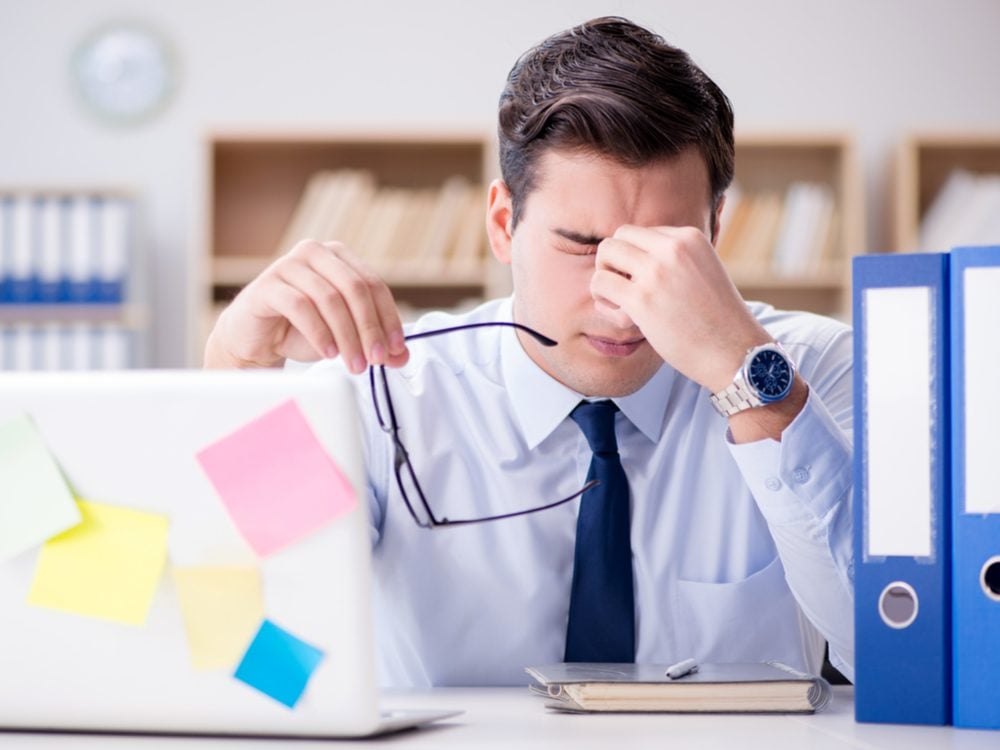
Don’t: Tackle an important project at work
If you can, save that important chat with your boss for a day when you feel bright-eyed and bushy-tailed. A study from Duke University Medical Center found that sleep-deprived adults were more likely to perceive something as positive and less likely to recognize negative outcomes. That means a decision you made when tired might not look so good when you’re rested and refreshed. “The best way to do your job well is to get enough sleep,” Kristen Knutson, a sleep expert at the University of Chicago told realsimple.com.
Here are 3 Reasons To Quit Your Job Right Now.
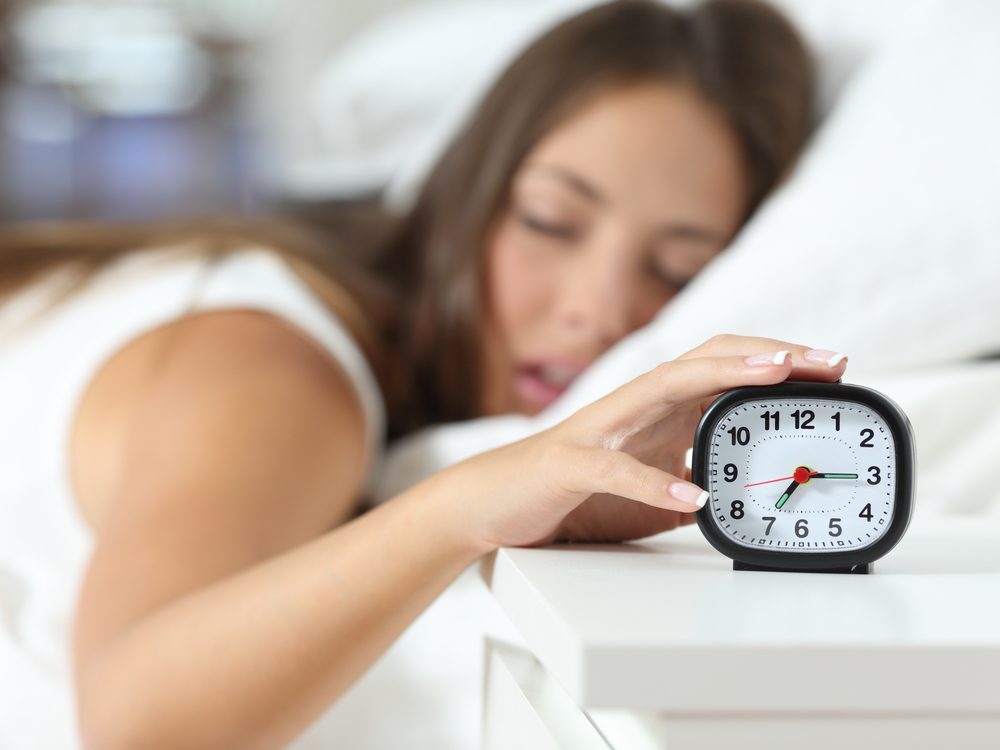
Don’t: Stray from your normal sleep schedule
It can be tempting to hit the sack early or smack the snooze button a few times when you’re tired, but resist the urge. Throwing off your sleep pattern can put you on an exhausting and erratic cycle that prevents you from getting quality sleep. “Your brain is not ready to fall asleep early, so you get in bed with what I call ‘wired and tired’—body tired and brain on…which leads to frustration and makes it even more difficult to nod off,” sleep specialist Michael Breus, PhD, told Prevention. Sleeping in is just as harmful. “Even just 30 minutes extra over a two-day span could cause a shift, prompting your body to want to sleep later and get up later,” he says. Dr. Barone offered this tip: Try to get seven to eight hours of sleep a night, even when you’re tired.
Here are 13 Secrets to Better Sleep Doctors Want You to Know.
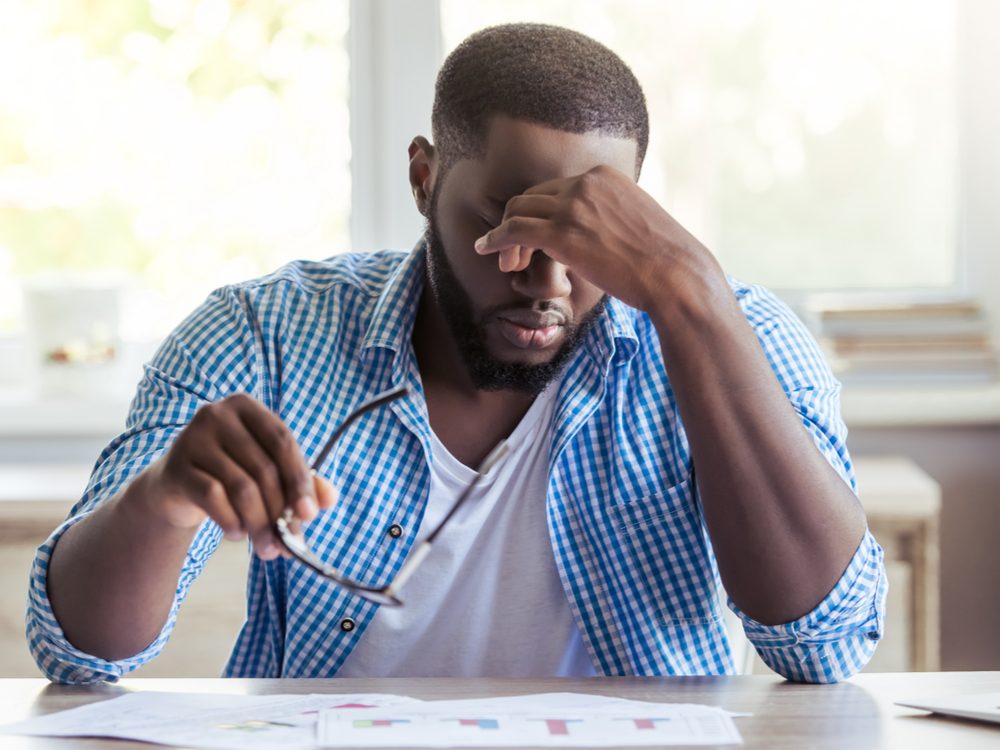
Don’t: Trust yourself to gauge how tired you really are
Sleep deprivation makes it harder to assess how tired you truly are. You might take on more than you can handle if you convince yourself you’re fine. One study found that people who went without sleep rated themselves as not feeling tired but made more errors when given an activity to complete. “Don’t try to gauge how tired you are. The bottom line is, you’re tired,” says Barone. “It’s a good idea to save any big decision or task for when you’re thinking clearly.”